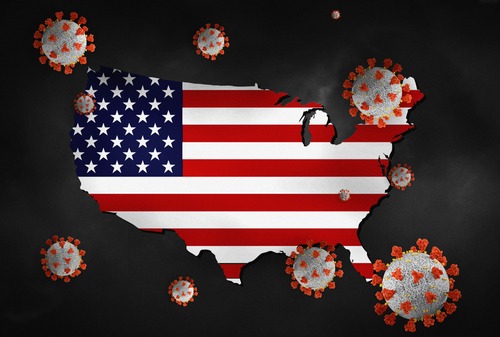
Given the destructive nature of the past year and a half under the COVID-19 pandemic, U.S. Rep. Eric Swalwell (D-CA) last week introduced two bills to strengthen pandemic response and treat them as national security threats rather than political minefields.
First was the National Security Council Modernization Act of 2021 (H.R. 4491), which would grant the Secretary of Health and Human Services a spot on the National Security Council (NSC). The second bill was the Biosecurity Information Optimization for Defense (BIO Defense) Act of 2021 (H.R. 4492), which calls for improvements to the National Biodefense Strategy to bolster preparation and response efforts and to crack down on health misinformation.
“COVID-19 must be seen as a wake-up call for the national security threats posed by major pandemics,” Swalwell said. “Infectious disease outbreaks bring not only human suffering but also massive economic losses and political instability – especially if outbreaks are serious enough to overwhelm our health care system, drain the workforce, and interrupt supply chains, which clearly puts our national security at risk.
Adding the HHS Secretary to the NSC effectively means the oversight voice for the Centers for Disease Control and Prevention and other disease surveillance agencies would suddenly have a larger role in national security considerations. It would also provide an official forum for the secretary to share details on public health threats with other national security departments, such as the Department of Defense, for collaboration.
Yet perhaps most importantly for modern times, the National Security Council Modernization Act would also demand permanent seats on the NSC for the Chair of the Joint Chiefs of Staff and the Director of National Intelligence, and demand that only Senate-confirmed officers could serve as full members. This would limit the president’s ability to alter the council and reduce sudden fluctuations as recently experienced during the Trump administration.
On the other hand, the BIO Defense Act would formalize a regularly meeting National Biodefense Directorate that would include both the vice president and department secretaries. This directorate would be able to hire staff and create uniform data collection methods to provide updates on risks posed by pandemics, including misinformation therein.
“The COVID-19 pandemic showed us that public health misinformation – particularly on social media – can jeopardize America’s response to biological threats, unnecessarily putting people in harm’s way,” Swalwell said. “Knowledge is power during a pandemic, and government must actively promote fact-based information – while actively debunking and preventing the spread of lies, be they deliberate or panic-induced – to save lives.”




